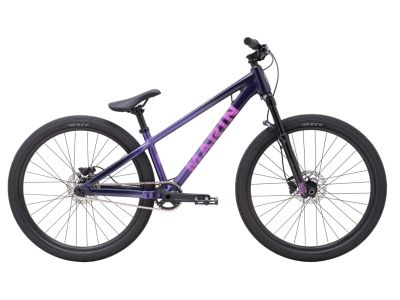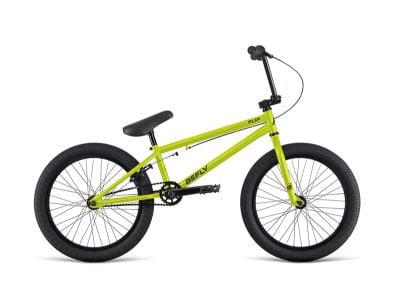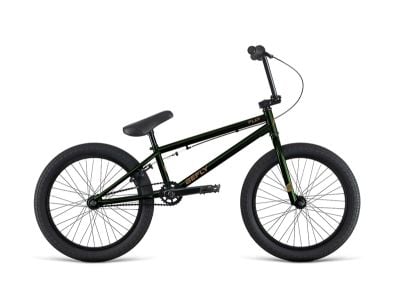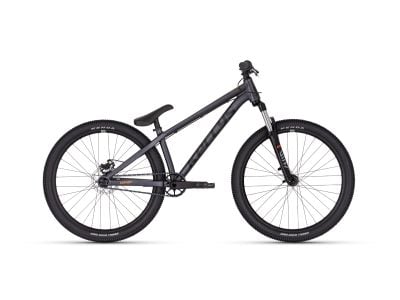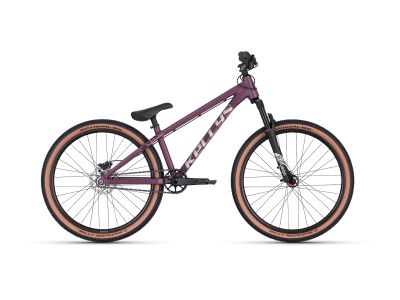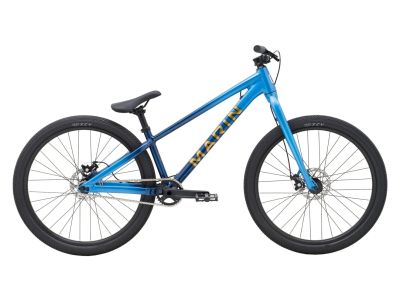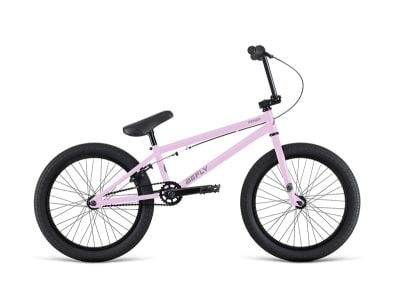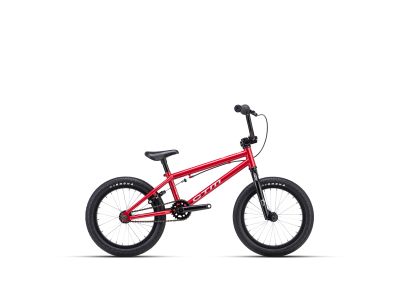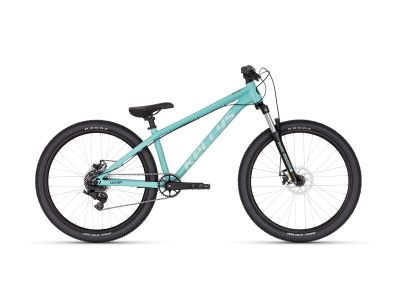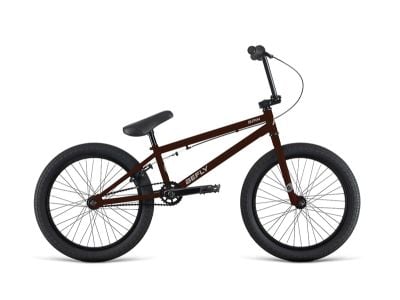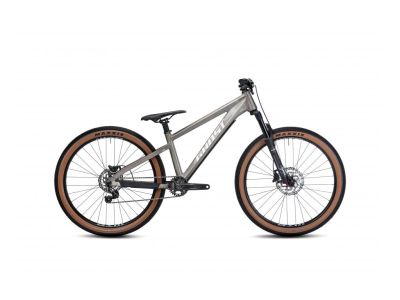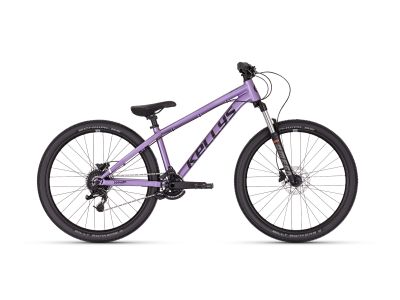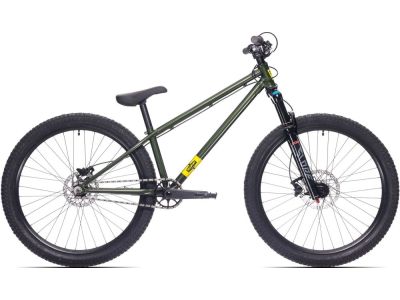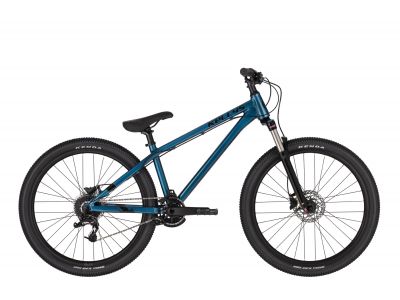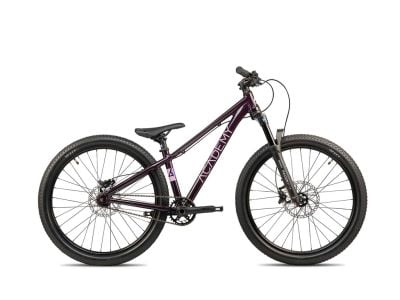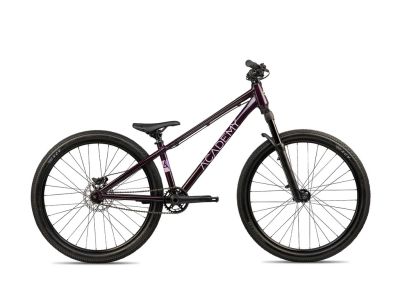We have noted your interest.
Dirt and BMX bikes
Dirt and BMX bikes are specialized types of bikes designed for specific conditions, and both types have specific features. Here is a brief overview of them:
- Dirt bikes:
- Purpose: Dirt bikes are intended for off-road use, on dirt tracks and jumps.
- Frame Construction: Dirt bike frames are generally robust and compact, allowing for manoeuvrability and handling in rough terrain.
- Wheel size: They have smaller wheels, usually from 24 inches to 26 inches, which allow for better handling and response.
- Suspension: Dirt bikes can be equipped with a front suspension fork, they usually have a rigid frame
- Gears: Dirt bikes often have single gears for simplicity. They are typically equipped with a cassette with 7-10 speeds.
- BMX bikes:
- Purpose: BMX bikes are intended for jumping and performing tricks and racing on BMX tracks or in skateparks.
- Frame construction: BMX frames are compact, robust and built for agility. Depending on the purpose of use, they are produced in different styles, for example as racing frames or freestyle frames.
- Wheel Size: BMX bikes typically have smaller wheels, usually 20 inches, which provide a low centre of gravity for better stability during jumps and tricks.
- Suspension: Most BMX have a rigid frame without suspension. The lack of suspension helps riders maintain control during jumps and tricks.
- Gearings: BMX bikes typically have single-speed overdrive gearing that allows riders to ride in parks. Some freestyle BMX bikes may have a gyroscopic system that allows the handlebars to turn without tangling the brake cables.
What are the main differences between dirt and BMX bikes?
Dirt bikes and BMX bikes have several fundamental differences in design and purpose. These are the main ones:
- Frame: BMX bikes typically have a smaller frame size compared to dirt bikes. BMX bike frames are built for manoeuvrability and tricks, while dirt bike frames are designed for stability and durability.
- Tires: BMX bikes have wider and taller tires with a lower tread that provides better traction on smooth surfaces like concrete or ramps. Dirt bikes have tires with a deeper tread and studs that are designed for off-road riding on mud, gravel, or trails.
- Suspension: BMX bikes usually do not have a suspension system. They rely on the movement of the rider's body and his technique to absorb shocks. On the contrary, dirt bikes have a front suspension that absorbs shocks and ensures a smoother ride on uneven terrain.
- Gears: BMX bikes typically have a single speed gear with a smaller gear and an overdrive mechanism. On the other hand, dirt bikes often have multiple gears to handle different terrains and riding conditions.
- Riding style: BMX bikes are mainly used for freestyle riding, performing tricks and riding in skateparks. They are designed for short distances and quick manoeuvres. Dirt bikes, on the other hand, are intended for off-road riding, including riding on trails and jumping on dirt tracks.
- Weight: BMX bikes are generally lighter than dirt bikes because they need to be easy to handle for tricks and stunts. Dirt bikes are built to withstand more demanding conditions, so they usually have heavier frames and components.
Both types of bikes offer exciting experiences but excel in different environments.
How to choose the right size BMX bike?
Selecting the right size BMX bike is critical to comfort, control, and performance. BMX size is primarily determined by the length of the top tube, which is the horizontal distance between the seat tube and the head tube. Here are some general guidelines to help you determine the right size:
- Rider height:
- For riders under 132 cm, a BMX bike with a top tube length of approximately 15-16 inches may be suitable.
- For riders between 132-142 cm tall, a mini BMX bike with a top tube length of approximately 17-18 inches may be suitable.
- For riders between 142-162 cm tall, a junior BMX bike with a top tube length of approximately 18-20 inches may be suitable.
- For riders between 162-172 cm tall, an expert BMX bike with a top tube length of approximately 20-21 inches may be suitable.
- For riders taller than 172 cm, a BMX bike with a top tube length of 20.5 inches or more may be suitable.
- Riding style and preferences: If you are more into technical tricks and manoeuvres, you may prefer a shorter length of the upper frame tube for better manoeuvrability. If you're more into speed and stability, you might prefer a longer top tube for better control.
It is important to note that these are general guidelines and personal preference may play a role.
How to choose the right size dirt bike?
Here are some steps to help you determine the right size:
- Rider height: Measure your height accurately, preferably without shoes, from the floor to the crown of your head. Compare your height with the manufacturer's recommended height chart for a specific dirt bike model. This information is often provided by the manufacturer, or you can find it in the bike's specifications.
- Seat height: Consider the dirt seat height. Ideally, both feet should be touching the ground when you are sitting on the bike. This allows you to maintain balance and control when stopping or manoeuvring.
- Load: Check the load of the bike to make sure it can support your weight comfortably and safely. Exceeding the weight limit can affect the performance and life of the bike.
- Riding experience: Consider your riding experience and skill level. If you are a beginner or have limited experience, it is generally recommended to start with a smaller size to develop your skills and confidence.
Answer a few questions and we'll pick the most suitable bike for you

-10% GT Pro Series Junior 20 children's bike, vivid transparent blue/white
449 €
-10%
RRP 499 €
